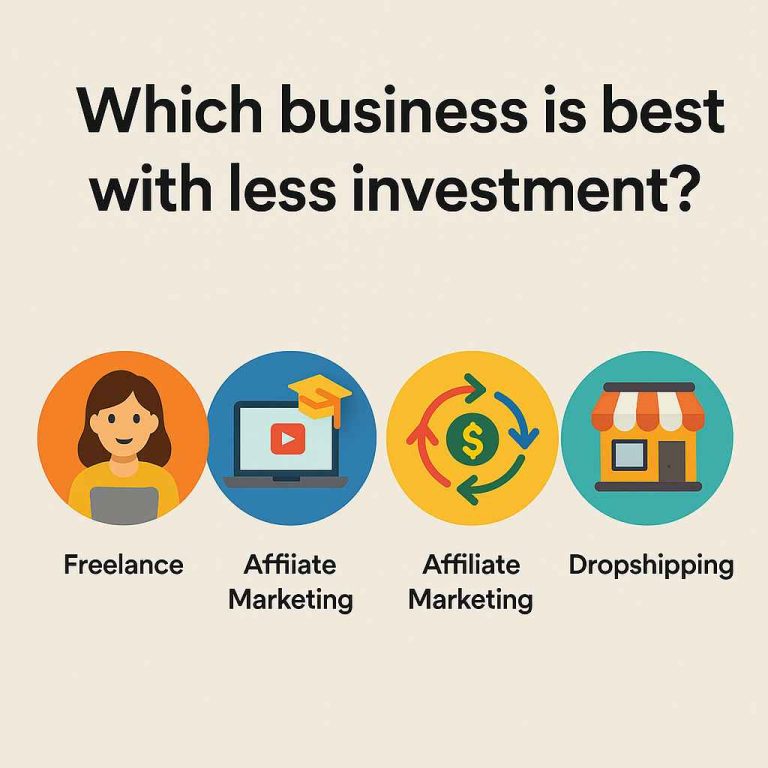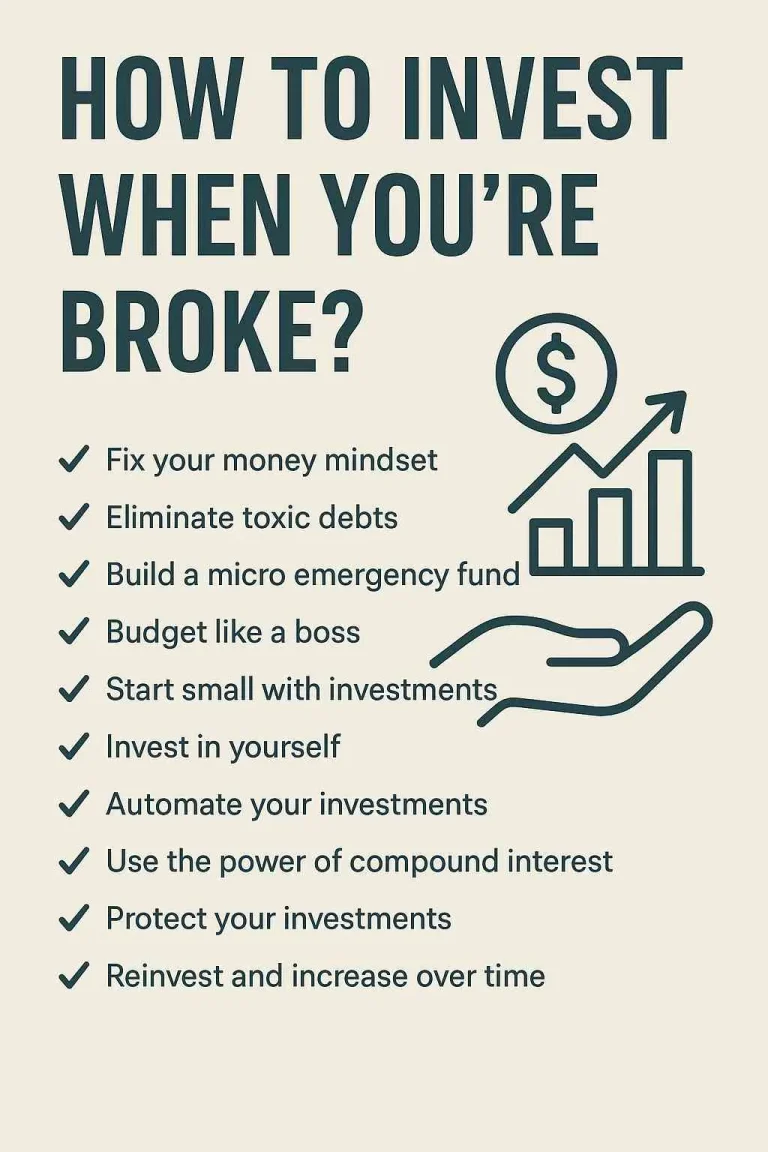The Ultimate Easy Guide to Real Estate Investing with LessInvest.com

Introduction
Real estate investing can be a great way to build wealth and earn steady income. With careful planning, some research, and clear goals, anyone can become a successful investor. At LessInvest.com, we make your real estate investment journey simple and enjoyable, whether you’re a beginner or experienced investor.
Why Invest in Real Estate?
Investing in real estate brings many exciting benefits:
- Value Growth: Property prices usually increase over time, giving you profits when you sell.
- Regular Income: Renting your property can provide steady monthly income.
- Borrowing Advantage: With a small down payment, you can control a valuable asset.
- Tax Benefits: Real estate investing comes with tax deductions for mortgage interest, property taxes, and more.
- Investment Diversity: Adding real estate to your investment portfolio can lower overall risk.
- Protection Against Inflation: Property values and rental incomes rise with inflation, protecting your investment.

Clearing Up Common Myths
Let’s clear up some myths that might hold you back:
- Myth: You need a lot of money.
Fact: Many affordable investment options let you start with a small budget. - Myth: Investing in real estate is too risky.
Fact: Good research and careful planning reduce risks significantly. - Myth: It takes too much time.
Fact: Today’s technology and property management services make investing manageable even with a busy schedule.

Different Ways to Invest in Real Estate
Real estate investing includes many exciting options:
- Residential: Homes, duplexes, apartments, condos.
- Commercial: Offices, shops, industrial spaces.
- Land: Undeveloped land that could increase in value.
- REITs: Real estate investment companies traded on the stock market.
- Crowdfunding: Online platforms to pool money with other investors.
- House Hacking: Live in one part of your property and rent out the rest.
Easy Steps to Start Investing
- Set Goals: Decide if you want passive income, wealth growth, or both.
- Review Finances: Look at your income, debts, and savings.
- Learn the Basics: Research the market, financing, and management.
- Build Your Team: Work with agents, lawyers, and property managers.
- Pick a Strategy: Buy-and-hold, flipping, REITs, or crowdfunding.
- Start Small and Diversify: Spread investments to reduce risk.
Researching the Market
Before investing, check:
- Location: Safety, amenities, future plans.
- Economy: Job market, population growth.
- Property Data: Rent rates, vacancies, value growth.
- Laws: Zoning, property taxes, rental regulations.
- Competition: Compare similar properties.
Financing Your Investments
Here are common financing options:
- Mortgages: Traditional bank loans.
- Hard Money Loans: Quick loans but higher rates.
- Home Equity: Borrow from your home’s equity.
- Partnerships: Invest with others to pool funds.
- Seller Financing: The seller provides a loan directly.
- Crowdfunding: Online platforms collecting investor funds.
Evaluating Your Investments
Consider these factors:
- Neighborhood: Growth potential, safety.
- Financial Analysis: Check profitability using Cap Rate, GRM, and IRR.
- Property Inspection: Assess renovation and maintenance needs.
- Legal Checks: Know local property laws and tenant rights.

Managing Risks in Real Estate
Be aware of these challenges:
- Market Changes: Economic downturns affecting property values.
- Tenant Issues: Late payments, vacancies, damages.
- Selling Difficulty: Properties aren’t always easy to sell quickly.
- Legal Issues: Zoning changes, tenant disputes.
- Management: Ongoing maintenance and unexpected costs.
Building Your Investment Portfolio
Grow your investments safely by:
- Mixing Property Types: Include residential, commercial, and land.
- Investing in Multiple Locations: Reducing risk by geographical diversity.
- Balancing Strategies: Combining long-term and short-term approaches.
- Smart Borrowing: Carefully managing debt to lower risks.
- Regular Reviews: Keeping your portfolio aligned with market changes.
Helpful Tools and Resources
Here are some handy resources:
- Property Search Websites: Zillow, Redfin, Realtor.com.
- Investment Calculators: Mashvisor, DealCheck, BiggerPockets.
- Learning Materials: Real estate books, courses, podcasts.
- Professional Help: Real estate agents, accountants, lawyers.
Conclusion
Real estate investing with LessInvest.com is an easy and effective way to build wealth and create income. By following this guide, researching carefully, managing risks, and diversifying your investments, you can achieve lasting financial success.
Here are some important FAQs related to “The Ultimate Easy Guide to Real Estate Investing with LessInvest.com”:
FAQs on Real Estate Investing
What is real estate investing?
Real estate investing involves purchasing, owning, managing, renting, or selling properties for profit. It can include residential, commercial, and industrial properties.
How can beginners start investing in real estate?
Beginners can start by researching different real estate investment strategies, such as buying rental properties, house flipping, or investing in Real Estate Investment Trusts (REITs). Understanding market trends and securing financing are also crucial steps.
What are the different types of real estate investments?
Residential real estate (homes, apartments, rental properties)
Commercial real estate (office buildings, shopping centers)
Industrial real estate (warehouses, manufacturing facilities)
Land investments (raw land, farmland)
REITs (Real Estate Investment Trusts – investing in real estate through publicly traded companies)
How much money do I need to start investing in real estate?
The amount depends on the investment type. Some investments, like REITs, require as little as $500, while buying a rental property may require a larger down payment (typically 10-20% of the property price).
Is real estate investing risky?
Yes, like any investment, real estate carries risks such as market downturns, property devaluation, tenant issues, and unexpected maintenance costs. Proper research and risk management strategies can help mitigate these risks.
What are the benefits of real estate investing?
Cash flow (rental income)
Appreciation (property value increase over time)
Tax benefits (deductions on mortgage interest, depreciation, and maintenance)
Leverage (using loans to maximize returns)
Inflation hedge (property values and rents often rise with inflation)
What is house flipping, and is it profitable?
House flipping is buying undervalued properties, renovating them, and selling for a profit. It can be highly profitable but requires knowledge of market trends, renovation costs, and timing.
What are REITs, and how do they work?
Real Estate Investment Trusts (REITs) are companies that own, operate, or finance real estate. Investors can buy shares in a REIT to earn passive income without directly owning property.
How can I finance my real estate investments?
Common financing options include:
Traditional mortgages (banks and credit unions)
Hard money loans (short-term, high-interest loans)
Private lending (borrowing from individuals or investment groups)
Real estate crowdfunding (investing small amounts with others)
Seller financing (property seller finances the deal instead of a bank)
What are the biggest mistakes to avoid in real estate investing?
Not doing enough market research
Underestimating maintenance and repair costs
Overpaying for properties
Ignoring location factors
Failing to properly screen tenants
Not having an exit strategy
Is it better to buy and hold or flip properties?
It depends on your goals. Buy-and-hold is ideal for long-term wealth and rental income, while flipping offers short-term profits but requires more work and risk.
How does location affect real estate investment success?
Location is one of the most critical factors. Properties in growing, high-demand areas with good schools, job opportunities, and amenities tend to appreciate more and attract quality tenants.
Can I invest in real estate with no money down?
Yes, some strategies include:
Wholesaling (finding undervalued properties and selling contracts)
Seller financing (owner agrees to finance instead of requiring a bank loan)
Partnerships (investing with others who provide capital)
Lease options (renting with the option to buy later)
How do I find good real estate investment deals?
Work with experienced real estate agents
Search MLS listings and foreclosure auctions
Network with other investors
Use online platforms like Zillow and Redfin
Look for off-market properties and distressed sales
What are the tax advantages of real estate investing?
Depreciation deductions
Mortgage interest deductions
Capital gains tax benefits
1031 exchange (deferring taxes on property sales by reinvesting)
How do I manage rental properties efficiently?
Screen tenants carefully
Use property management software
Hire a property management company
Set up emergency funds for repairs
Maintain good relationships with tenants
What is the BRRRR strategy in real estate investing?
The BRRRR strategy stands for:
Buy an undervalued property
Rehab (renovate and increase value)
Rent it out for cash flow
Refinance to pull out equity
Repeat the process to scale investments
How does inflation affect real estate investing?
Real estate often acts as an inflation hedge because property values and rental prices tend to rise with inflation, maintaining the investment’s purchasing power.
Should I invest in single-family homes or multi-family properties?
Single-family homes are easier to manage and sell but may have lower rental income.
Multi-family properties generate higher cash flow but require more management and a larger upfront investment.
How long should I hold an investment property?
It depends on your goals. Long-term (5-10 years or more) provides appreciation and rental income, while short-term (1-3 years) might be ideal for flipping.
Ready to Begin? Sign up today at Lessinvest.com!
Final Tip: Always research thoroughly, seek expert advice, and stay patient for long-term success.
Happy Investing!






